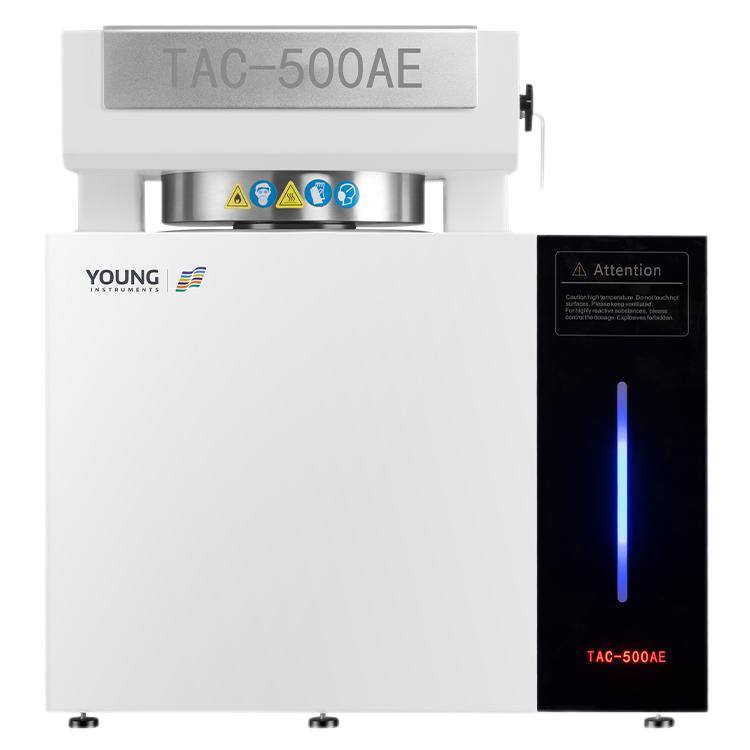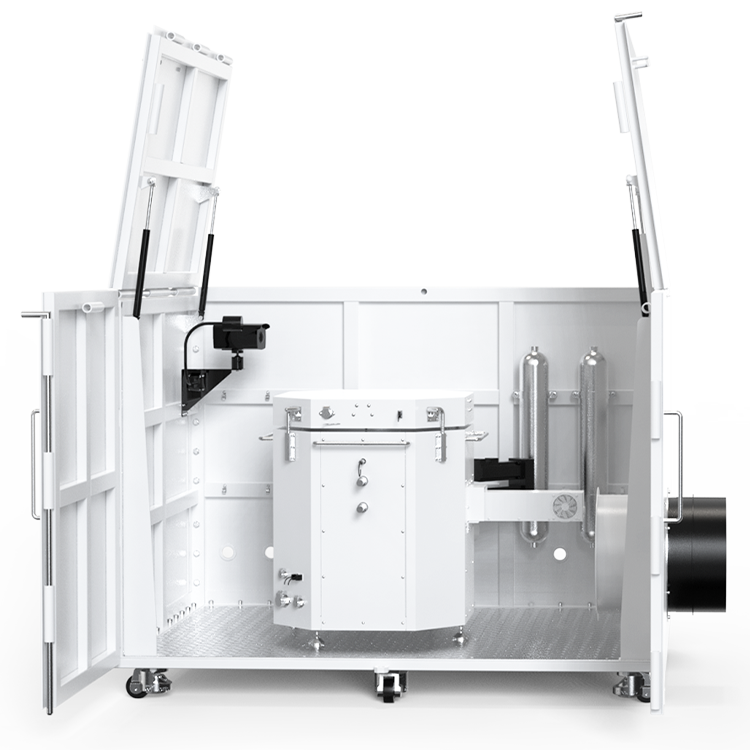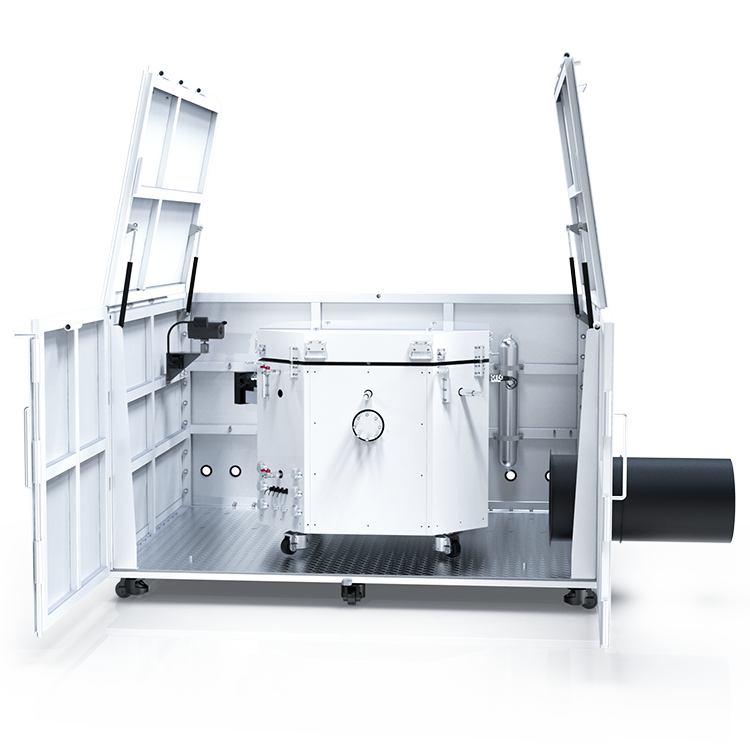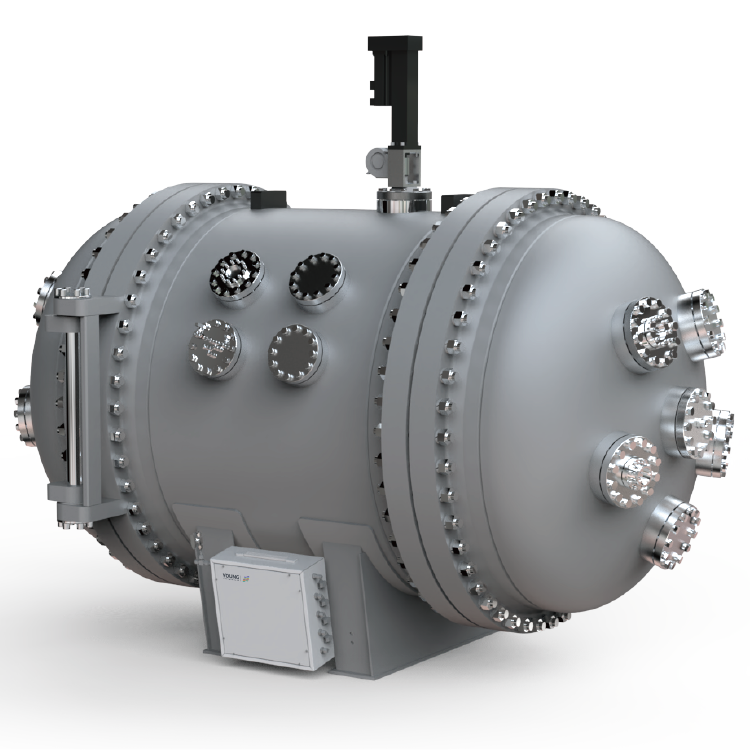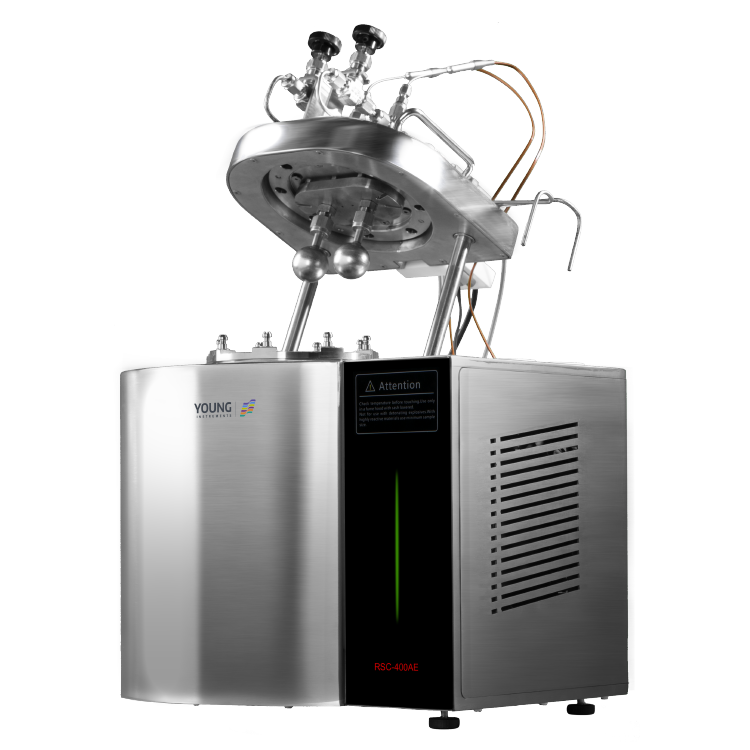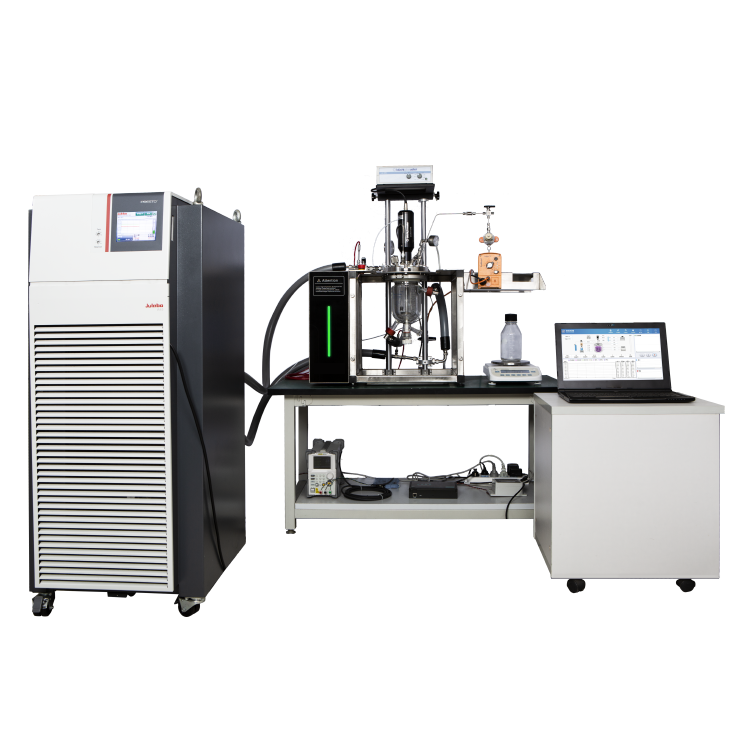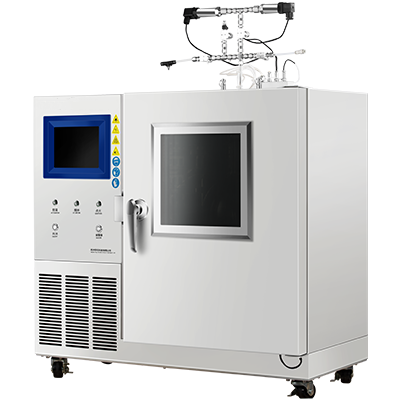The Accelerating Rate Calorimeter in Thermal Analysis Instrumentation
Thermal Analysis Instrumentation a crucial role in understanding how materials behave under heat stress, which is essential for a wide range of industries. It involves studying changes in material properties as they are subjected to varying temperature conditions. One of the key aspects of thermal analysis is determining the heat release rates of different materials, which can significantly impact safety and stability in chemical processes.
The Accelerating Rate Calorimeter (ARC), specifically the TAC-500AE model, is instrumental in this field. It is designed for the development and optimization of chemical processes, assessment of chemical thermal hazards, investigation of combustion accidents, and thermodynamics research across sectors like fine chemicals, pharmaceuticals, energetic materials, and polymers.
Principles of Thermal Analysis Instrumentation
Definition of Thermal Analysis
Thermal Analysis Instrumentation is a branch of materials science where the properties of materials are studied as they change with temperature. It encompasses a variety of techniques used to examine how substances expand, contract, decompose, or undergo other physical and chemical changes upon heating or cooling.
Basic Principles of Calorimetry Thermal Analysis Instrumentation
Calorimetry, a key method in thermal analysis, involves measuring the amount of heat required or released during a material transition. This is achieved by observing the temperature change of a material in a controlled environment, usually compared against a reference sample under the same conditions. The data gathered helps in understanding the enthalpy changes associated with different processes such as melting, vaporization, or chemical reactions.
Importance of Measuring Heat Release Rates
Measuring heat release rates is vital for assessing the thermal stability and hazard potential of materials, especially in industries like pharmaceuticals and chemicals. This measurement can predict how a material will react to temperature changes, including its potential for thermal runaway reactions, which are critical for ensuring safety in manufacturing and storage environments.
Overview of the Accelerating Rate Calorimeter (ARC)
History and Development of Hangzhou Zeal Instruments
Founded in 2014, Hangzhou Zeal Instruments Science & Technology Co., Ltd. specializes in the development of thermal analysis and nondestructive measurement technologies. The company focuses on creating professional solutions for thermal parameters and the nondestructive evaluation of new materials and lithium-ion batteries. Zeal Instruments is committed to continuous innovation and excellence, aiming to advance research in new materials and energy sectors by providing cutting-edge testing technologies and instruments to its customers.
Components and Working Principle
The Accelerating Rate Calorimeter (ARC) from Zeal Instruments is designed for versatility in thermal analysis, supporting multiple operational modes such as Heating-Waiting-Search (HWS), isothermal, and constant rate scanning. The Accelerating Rate Calorimeter (ARC) from Zeal Instruments is designed for versatility in thermal analysis, supporting multiple operational modes such as Heating-Waiting-Search (HWS), isothermal, and constant rate scanning. It features:
- Professional Data Analysis Software: This software can automatically calculate key parameters like heat release onset temperature, adiabatic temperature rise, activation energy, and pre-exponential factors. It incorporates guidelines from emergency management departments for safety risk assessments of chemical reactions, facilitating comprehensive hazard evaluations.
- Safety Features: The ARC is equipped with an inert gas connection for rapid furnace cooling post-experiment, and includes experimental status indicators, as well as alarms for overpressure and overtemperature situations.
- User-friendly Design: The furnace lid has an automatic lifting function for enhanced safety and operational ease. The industrial design is both simple and robust, with intuitive human-machine interaction features that are easy to learn and operate.
Advantages of ARC Compared to Other Thermal Analysis Techniques
One advantage of this method is its high sensitivity, enabling precise measurement of the initial temperature during thermal decomposition. It also captures temperature and pressure changes over time, particularly crucial for slow pressure variations in the early stages of decomposition. This capability surpasses the limitations of Differential Thermal Analysis (DTA) and Differential Scanning Calorimetry (DSC), making it valuable for studying substances with intricate decomposition kinetics.

Applications of the Accelerating Rate Calorimeter
Chemical Industry: Assessing the Thermal Stability of Chemicals
The Accelerating Rate Calorimeter (ARC) is a critical tool in the chemical industry, used to determine the thermal stability of substances. This analysis is essential to prevent potential hazards such as thermal runaways during the manufacturing, storage, and transportation of chemicals. By precisely measuring heat release under controlled conditions, the ARC aids in identifying the conditions under which a chemical might pose a safety risk.
Pharmaceutical Industry: Evaluating the Safety of Drug Formulations
In the pharmaceutical industry, the ARC is instrumental in evaluating the safety of drug formulations. It analyzes how different components of a drug interact at various temperatures and predicts decomposition points, ensuring that drugs remain safe and effective throughout their shelf life and under different environmental conditions.
Battery Industry: Testing the Thermal Behavior of Battery Materials
In the battery industry, the ARC is vital for examining the thermal behavior of materials used in batteries, such as lithium-ion cells. It evaluates the thermal stability and hazard potential of new battery materials, contributing to the development of safer and more efficient batteries. This evaluation is particularly crucial due to the high energy densities and associated risks of thermal incidents in modern batteries.
Other Industrial Applications
The ARC also finds applications in other industries, such as polymers and plastics, where it assesses material behavior under thermal stress. It is utilized in the analysis of energetic materials like explosives to ensure stability and safety. Additionally, the ARC is employed in environmental science to study the decomposition of various substances under specified thermal conditions.
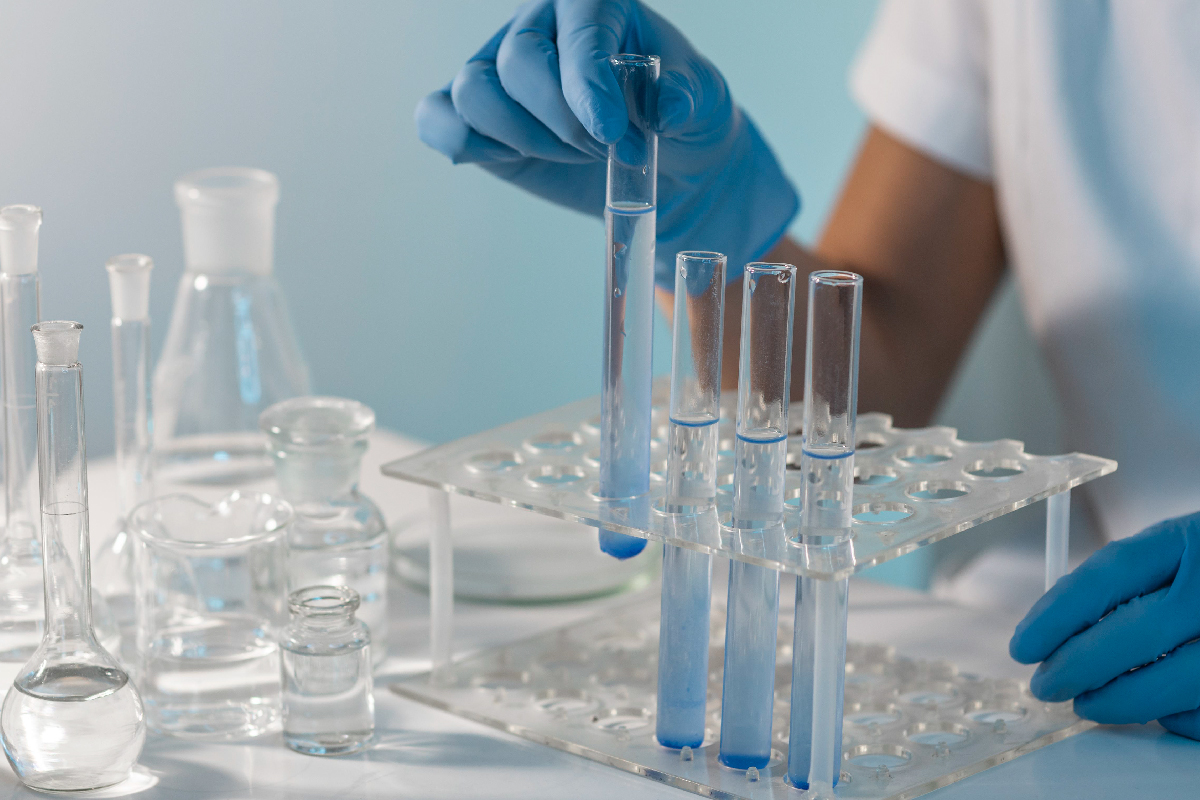
Experimental Methodology with the Accelerating Rate Calorimeter
Specifications of the Accelerating Rate Calorimeter
- Temperature Control and Monitoring: The ARC operates within a temperature range from room temperature to 500°C. It features a temperature detection threshold that ranges from 0.005°C/min to 0.02°C/min and a tracking rate adjustable from 0.005°C/min up to 40°C/min. The device offers a high temperature resolution of 0.001°C, enabling precise thermal analysis.
- Pressure Capabilities: The calorimeter detects pressures ranging from 0 to 20,000 kPa with a resolution of 1 kPa, accommodating a variety of experimental conditions involving gases or volatile substances.
- Sample and Test Cell Features: The ARC accommodates a sample test amount of 8 mL in a test cell made from stainless steel, titanium alloy, or optionally, Hastelloy, meeting diverse experimental requirements and chemical resistances.
- System Configuration and Environment: Designed for a working environment with temperatures between 5°C and 40°C and humidity under 85% RH, it features USB or RJ45 interfaces. The calorimeter requires a power supply of AC220V/50Hz and consumes less than 3000W, ensuring efficient operation.
Sample Preparation
Preparing samples for ARC requires accurate measurement of approximately 8 mL of test material. And place it in a test cell made of materials such as stainless steel or titanium alloy. The sample must be representative of the material under study and prepared under conditions that prevent any pre-reaction or contamination.
Measurement Procedures
The measurement process begins by setting up the required temperature profile in the ARC. These range from simple isothermal tests to more complex scan rate experiments. ARC can detect small temperature changes (as low as 0.001°C). Even the tiniest thermal reactions can be detected. Pressure within the cell is also monitored to assess any gas evolution during the reaction.
Data Analysis Techniques
Data from ARC were analyzed using sophisticated software. The software calculates various thermal properties and kinetic parameters. Includes reaction starting temperature, peak pressure and temperature, and reaction energy. Advanced techniques can also predict the behavior of the material under scaled-up conditions, which is essential for industrial applications. The software integrates guidelines for chemical reaction safety, providing a comprehensive safety analysis based on the experimental data.
In Sum
Our Acceleration Calorimeter (ARC) is a key tool in thermal analysis. Can provide valuable insights into the thermal stability and safety of materials across different industries. Its precision and adaptability make it essential for ensuring safety in chemical processes, pharmaceutical stability, and battery safety. Advances in ARC technology continue to enhance its sensitivity and functionality. paves the way for wider applications and more efficient materials evaluation. With the development of thermal analysis instrumentation, combined with sophisticated data analysis and prediction techniques. ARC will remain at the forefront and make significant contributions to safety, innovation and efficiency in materials science. The continued development and application of ARC technology not only safeguards current industrial practices. Also guides the future of materials research and safety assessment.








